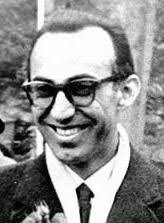 W
WFereydun Adamiyat or Fereidoon Adamiyat was a leading social historian of contemporary Iran and particularly the Qajar era. He was the son of Abbasquli Adamiyat, a pioneer of the Iranian Constitutional Revolution. Fereydun Adamiyat received his B.A. from the University of Tehran and his PhD in diplomatic history from the London School of Economics. He is known for his original works on various aspects of the social and political history of Persia, most of them dealing with the ideological foundations of the Iranian Constitutional Revolution. Believing firmly in history's "Rational Movement", Adamiyat saw no conflict between normative judgement and claims to objectivity. Although predominantly published in Persian, he is often cited by Western scholars. His most famous book was Amir Kabir and Iran.
 W
WIraj Afshar was a bibliographer, historian, and an iconic figure in the field of Persian studies. He was a consulting editor of Encyclopædia Iranica at Columbia University and a full professor emeritus of University of Tehran.
 W
WAbbas Amanat is William Graham Sumner Professor of History at Yale University and Director of the Yale Program in Iranian Studies.
 W
WJaleh Amouzgar is an Iranologist and a university professor.
 W
WNina Ansary is an Iranian–American historian and author best known for her work on women's equity in Iran. Ansary's research has notably countered conventional assumptions of the progress of women in Iran while continuing to advocate for full emancipation. In 2015, Women's eNews recognized Ansary as one of "21 leaders of the 21st century."
 W
WAzartash Azarnoush is a linguist and scholar of Iran. Born in 1937 in Qom, he holds two Ph.D degrees from France. He specializes in Arabic literature. Azarnoush is part of Imam Sadeq University and Tarbiat Modarres University faculty, and has been director of the Arabic department of The Center for the Great Islamic Encyclopedia in Tehran since 1986, and has published over 200 articles in the field of Arabic literature, as well as a few dozen books.
 W
WMohammad-Taqi Bahar, widely known as Malek osh-Sho'arā and Malek osh-Sho'arā Bahār, was a renowned Iranian poet, scholar, politician, journalist, historian and Professor of Literature. Although he was a 20th-century poet, his poems are fairly traditional and strongly nationalistic in character. Bahar was father of prominent Iranist, linguist, mythologist and Persian historian Mehrdad Bahar.
 W
WIraj Bashiri is professor of history at the University of Minnesota, United States, and one of the leading scholars in the fields of Central Asian studies and Iranian Studies. Fluent in English, Persian, Tajik, and several Turkic languages, Bashiri has been able to study and translate works otherwise inaccessible to the mostly Russian-speaking Central Asian studies community. Bashiri career focus started on Iran, and engaged also with Central Asia, notably the Tajik identity and the relations between Tajiks and the Turkic people of Central Asia, namely the Uzbeks.
 W
WBahrām Beyzāie is a critically and popularly acclaimed filmmaker, playwright, theatre director, screenwriter, film editor, and ostād ("master") of Persian letters, arts and Iranian studies.
 W
WHamid Dabashi is an Iranian Professor of Iranian Studies and Comparative Literature at Columbia University in New York City.
 W
WMohammad Taqi Danesh Pajouh or Mohammad Taghi Daneshpajouh was a writer, musician, translator, orientalist and Iranian scholar, a member of the Academy of Persian Language and Literature, professor at the University of Tehran and the father codicology of Iran.
 W
WTouraj Daryaee is an Iranian Iranologist and historian. He currently works as the Maseeh Chair in Persian Studies and Culture and the director of the Dr. Samuel M. Jordan Center for Persian Studies at the University of California, Irvine.
 W
WRashīd al-Dīn Ṭabīb, also known as Rashīd al-Dīn Faḍlullāh Hamadānī, (1247–1318) was a statesman, historian and physician in Ilkhanate-ruled Iran. He was born into a Persian Jewish family from Hamadan.
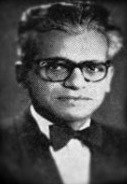 W
WSeyyed Mohammad-Ali Emam-Shooshtari was a prominent Iranian historian and religious scholar.
 W
WAbbas Eqbal Ashtiani was an Iranian literary scholar, historian, translator, and man of letters.
 W
WʻAlí-Akbar Furútan was a prominent Iranian Baháʼí educator and author who was given the rank of Hand of the Cause in 1951.
 W
WHafiz-e Abru died June 1430) was a Persian historian working at the courts of Timurid rulers of Central Asia. His full name is ʿAbdallah ibn Lotf-Allah ibn 'Abd-al-Rashid Behdadini; his short name is also transcribed in Western literature as Hafiz-i Abru, Hafez-e Abru, Hafiz Abru etc.
 W
WAli Haghshenas is an Iranian Writer, Historian and Journalist.
 W
WHedayatollah Behboudi Kalhori, known as Hedayatollah Behboudi is an Iranian Shia writer and reporter. He was born in Tabriz, and left for Tehran in 1964. He graduated in the field of history from University of Tehran in 1992.
 W
WJalal al-Din Mirza was an Iranian historian and freethinker, born in Tehran. He wrote a semi-historical book about the history of Iran named Name-ye Khosrovan, potentially one of the first comprehensive nationalistic works about the country.
 W
WShahram Jalilian is an Iranian Iranologist and historian. His Higher education was in Shahid Beheshti University and took his doctorate in History of Ancient Iran at the University of Tehran. He is now the Associate Professor in the history of Ancient Iran at Shahid Chamran University of Ahvaz.
 W
WAyatollah Haj Mirza Khalil Kamarah'i He was an author, researcher and philosopher of contemporary theology that sought to unite the Muslim sects supporting his cause. He studied under Abdul-Karim Ha'eri Yazdi in Arak and Qom. He continued his studies of various Islamic subjects and philosophy throughout his life. He worked with the administration in the Vatican City on various philosophical questions, which he later released in a separate book. He travelled to Cairo on behalf of Seyyed Hossein Borujerdi and Mahmud Shaltut, the Grand Mufti and dean of Al-Azhar University Sheikh, for fatwa. He were an imam for the Jamaat of Fakhr Al-dole mosque in Tehran for more than three decades and thought at the University of Theology in Tehran for five years.
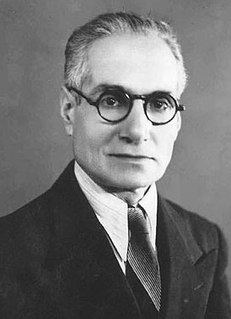 W
WSeyyed Ahmad Kasravi Tabrizi, Commonly known as Ahmad Kasravi, was a leading Iranian linguist, nationalist, religious reformer, historian and former Shia cleric. Born in Hokmabad (Hohmavar), Tabriz, Iran, Kasravi was an Iranian Azeri. Initially, Kasravi enrolled in a seminary. Later, he joined the Iranian Constitutional Revolution. He experienced a sort of conversion to Western learning when he learned that the comet of 1910 had been identified as a reappearance of Halley's comet. He abandoned his clerical training after this event and enrolled in the American Memorial School of Tabriz. Thenceforward he became, in Roy Mottahedeh's words, "a true anti-cleric."
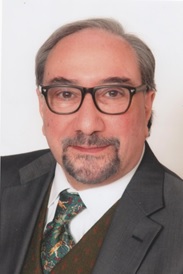 W
WHoma Katouzian is an economist, historian, political scientist and literary critic, with a special interest in Iranian studies.[1] Katouzian's formal academic training was in economics and the social sciences but he concurrently continued his studies of Persian history and literature at a professional academic level. He began studying the life and works of the modern Persian writer, Sadeq Hedayat, and that of the Prime Minister of Iran in the early 1950s, Mohammad Mosaddeq, while still a faculty member in the department of economics at the University of Kent at Canterbury. Having taught economics at universities in Britain and other countries for eighteen years, he took voluntary retirement in 1986 to devote his entire time to Iranian studies. In recent years, he has been teaching and writing on classical Persian literature, in particular the 13th-century poet and writer, Sa‘di. Currently based at the University of Oxford, Katouzian is a member of the Faculty of Oriental Studies and the Iran HeritageResearch Fellow at St. Antony's College, where for thirteen years he edited the bimonthly Iranian Studies, the journal of the International Society for Iranian Studies. He is editor of the International Journal of Persian Literature, senior editor of Iran Namath, a journal of Iranian studies, and co-editor of Routledge's Iranian studies book series. He is also a former member of the editorial board of Comparative Studies of South Asia, Africa and the Middle East and Comparative Economic Studies.
 W
WSeyyed Hossein Makki was an Iranian politician, orator and historian. He was a member of Parliament of Iran for three consecutive terms from 1947 to 1953.
 W
WAbbas Malekzadeh Milani is an Iranian-American historian and author. Milani is a visiting professor of Political Science and the director of the Iranian Studies program at Stanford University. He is also a research fellow and co-director of the Iran Democracy Project at Stanford University's Hoover Institution. Milani has found evidence that Persian modernism dates back to more than 1,000 years ago.
 W
WMirza Mehdi Khan Astarabadi, also known by his title of Monshi-ol-Mamalek, was the chief secretary, historian, biographer, advisor, strategist, friend and confidant of King Nader Shah Afshar. He who wrote and accepted the different decisions and files related to the Empire.
 W
WMohammad Mohammadi-Malayeri was an Iranian historian, linguist, and literary scholar. He authored numerous books and articles on comparative Persian and Arabic languages and literature as well as Iranian history specifically the period of transition between the Sassanid Empire and the Islamic era. He taught at the American University of Beirut, the Lebanese University, as well as the University of Tehran, where he was the Dean of the Faculty of Theological Sciences. He is best known for his 5-volume work titled “Iranian Culture and History during the Period of Transition between the Sassanid and Islamic Eras”
 W
WPirouz Mojtahedzadeh is an Iranian political scientist and historian. He is a prominent Iranologist, geopolitics researcher, historian and political scientist. He teaches geopolitics at the Tarbiat Modares University of Tehran. He has been the advisor of the United Nations University. Mojtahedzadeh has published more than 20 books in Persian, English and Arabic on the geopolitics of Persian Gulf region and modern discourses in international relations. Since 2004, he has been a member of the Academy of Persian Language and Literature. He has been a member of the British Institute of Iranian Studies since 1993. Mojtahedzadeh earned a Ph.D. in political geography from the University of London in 1993 and a Ph.D. in political geography from the University of Oxford in 1979.
 W
WDavud Monshizadeh was the founder of the SUMKA and a supporter of Nazi ideology in Germany during World War II and in Iran after the war. He was also a scholar in Iranian Studies who later became a Professor of Iranian Languages at Uppsala University, Sweden.
 W
WHamdallah Mustawfi Qazvini was a Persian official, historian, geographer and poet. He lived during the last era of the Mongol Ilkhanate, and the interregnum that followed.
 W
WAfsāneh Najmābādi is an Iranian-American historian and gender theorist. She is the Francis Lee Higginson Professor of History and of Studies of Women, Gender, and Sexuality at Harvard University.
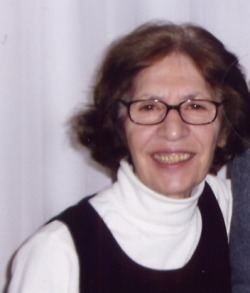 W
WHoma Nategh was an Iranian historian, Professor of History at University of Tehran. A specialist in the contemporary history of Iran, she resided in Paris, France until her death. She was active during Iran's 1979 revolution. After the revolution she was purged from the University of Tehran and moved to Paris, where she was appointed as professor of the Iranian Studies at the Sorbonne. In Sorbonne she published several articles on Iranian history in Qajar period.
 W
WAmnon Netzer was an Iranian-born Israeli historian, researcher, professor and journalist. Netzer was a leading authority on Iranian history and culture as well as Persian and Judeo-Persian languages. Netzer founded Israel Broadcasting Authority's Persian Service in 1958 and was a professor at the Hebrew University of Jerusalem until his death in 2008.
 W
WMohammad Ebrahim Bastani Parizi was an Iranian historian, translator, poet, essayist and author of non-fiction books. His numerous publications are mostly popular reads on topics such as the history of Iran and the history of his hometown Pariz in Kerman province.
 W
WHassan Pirnia, was a prominent Iranian politician of 20th-century Iran. He held a total of twenty-four posts during his political career, serving four times as Prime Minister of Iran. He was also a historian, co-founding the Society for the National Heritage of Iran.
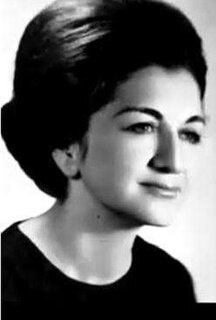 W
WSakineh Simin M. Redjali (Persian: سکینه سیمین رجالی; born 1934 is an Iranian-American Psychologist and author. Simin Redjali was the first female professor of National University of Iran.
 W
WKhodadad Rezakhani is an Iranian historian of late antique Central and West Asia. He has been Associate Research Scholar at The Sharmin and Bijan Mossavar-Rahmani Center for Iran and Persian Gulf Studies Princeton University from 2016 to 2020.
 W
WMohammad-Amin Riahi was a prominent Iranian literary scholar of Persian literature, a historian, writer and statesman. Apart from being one of the authors of Dehkhoda Dictionary and Encyclopædia Iranica, he was the author and editor of several well-known scholarly books. Mohammad-Amin Riahi received his PHD on Persian literature from Tehran University under the supervision of Badiozzaman Forouzanfar. Riahi is best known for his scholarly works on Shahnameh and Ferdowsi, Hafiz, and the ancient iranian languages. He has produced critical editions of some of the major classical Persian texts such as Mersad-al-ebad and Nozhat-al-majalis. During a course of 60 years he published numerous scholarly articles, a selection of which are gathered in a volume titled Forty essays on language, literature and history of Iran.
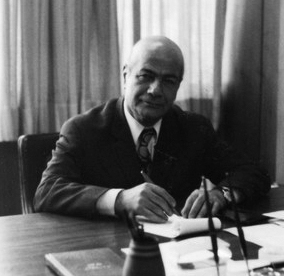 W
WZabihollah Safa was a scholar and professor Emeritus of Iranian Studies at the University of Tehran.
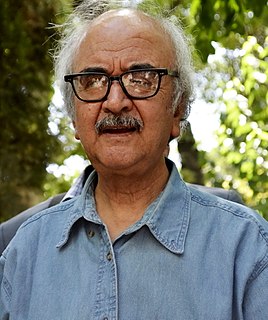 W
WMohammad-Reza Shafiei Kadkani is an Iranian writer, poet, literary critic, editor, and translator.
 W
WAbdollah Shahbazi is an Iranian historian.
 W
WJafar Shahidi known as Seyed Jafar Shahidi was a distinguished scholar of the Persian language and literature, and a renowned historian of Islam. Born in Boroujerd, Lorestan Province, Iran, Shahidi dedicated his life to Persian studies, acting as the director of the Dehkhoda Dictionary Institute and International Center for Persian Studies (ICPS), serving as the Dean of the Faculty of Literature and Humanities at the University of Tehran (UT), and mastering the fields of jurisprudence and Islamic history. As a member of the Faculty of Literature and Humanities at the University of Tehran, Shahidi specialized in the study of Persian language and literature as well as Islamic theology, jurisprudence, and history.
 W
WAlireza Shapour Shahbazi was a prominent Persian archeologist, Iranologist and a world expert on Achaemenid archeology. Shahbazi got a BA degree in and an MA degree in East Asian archeology from SOAS. Shahbazi had a doctorate degree in Achaemenid archeology from University of London. Alireza Shapour Shahbazi was a lecturer in Achaemenid archeology and Iranology at Harvard University. He was also a full professor of Archeology at Shiraz University and founded at Persepolis the Institute of Achaemenid Research in 1974. After the Islamic revolution, he moved to the USA, firstly teaching at Columbia University and then later becoming a full professor of history in Eastern Oregon University.
 W
WSharaf ad-Din Ali Yazdi or Sharif al-Din Ali’ Yazdi, also known by his pen name Sharaf, was a 15th-century Persian scholar who authored several works in the arts and sciences, including mathematics, astronomy, enigma, literature such as poetry, and history, the Zafarnama, a life of Timur, being his most famous(539). He was born in the affluent city of Yazd, Iran in the 1370s. He devoted much of his life to scholarship, furthering his education in Syria and Egypt until Timur's death in 1405 (1,19).
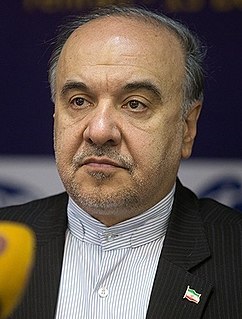 W
WMasoud Soltanifar is an Iranian politician, historian and the current Minister of Youth Affairs and Sports since 1 November 2016. He was previously Vice President of Iran and head of Cultural Heritage, Handcrafts and Tourism Organization. He is the former member of City Council of Tehran and Governor of Gilan Province. He was previously deputy head of Physical Education Organization and Hassan Rouhani's candidate for Ministry of Youth Affairs and Sports, a nomination that rejected by the parliament. In October 2016, he was again nominated for the position and was approved by the new parliament. He is a member of National Trust Party, as well as Moderation and Development Party.
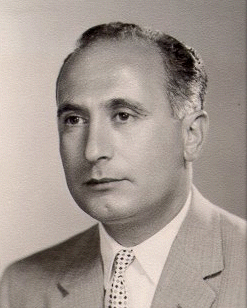 W
WEhsan Yarshater was an Iranian historian and linguist who specialized in Iranology. He was the founder and director of The Center for Iranian Studies, and Hagop Kevorkian Professor Emeritus of Iranian Studies at Columbia University.
 W
WAbdolhossein Zarrinkoub was a scholar of Iranian literature, history of literature, Persian culture and history.